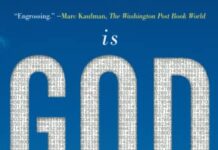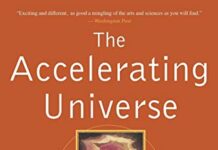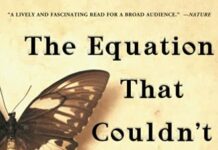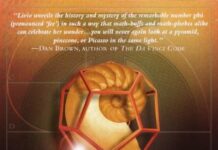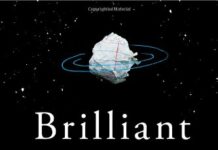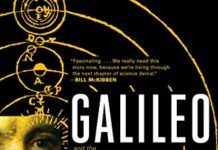
Ebook Info
- Published: 2017
- Number of pages: 291 pages
- Format: PDF
- File Size: 23.47 MB
- Authors: Mario Livio
Description
Astrophysicist and author Mario Livio investigates perhaps the most human of all our characteristics—curiosity—in this “lively, expert, and definitely not dumbed-down account” (Kirkus Reviews) as he explores our innate desire to know why.Experiments demonstrate that people are more distracted when they overhear a phone conversation—where they can know only one side of the dialogue—than when they overhear two people talking and know both sides. Why does half a conversation make us more curious than a whole conversation? “Have you ever wondered why we wonder why? Mario Livio has, and he takes you on a fascinating quest to understand the origin and mechanisms of our curiosity. I thoroughly recommend it.” (Adam Riess, Nobel Prize Winner in Physics, 2011). Curiosity is not only at the heart of mystery and suspense novels, it is also essential to other creative endeavors, from painting to sculpture to music. It is the principal driver of basic scientific research. Even so, there is still no definitive scientific consensus about why we humans are so curious, or about the mechanisms in our brain that are responsible for curiosity. In the ever-fascinating Why? Livio interviewed scientists in several fields to explore the nature of curiosity. He examined the lives of two of history’s most curious geniuses, Leonardo da Vinci and Richard Feynman. He also talked to people with boundless curiosity: a superstar rock guitarist who is also an astrophysicist; an astronaut with degrees in computer science, biology, literature, and medicine. What drives these people to be curious about so many subjects? An astrophysicist who has written about mathematics, biology, and now psychology and neuroscience, Livio has firsthand knowledge of his subject which he explores in a lucid, entertaining way that will captivate anyone who is curious about curiosity.
User’s Reviews
Reviews from Amazon users which were colected at the time this book was published on the website:
⭐Mario Livio is a quite well-known scientist, an astrophysicist. He is intrigued by the mysterious factor that has driven the great scientists throughout the ages – curiosity.Curiosity does not correlate extremely strongly with any other particular skill. Livio points out that two of the most curious people of all time, Leonardo da Vinci and Charles Darwin, were by their own admission not very mathematically gifted. On the other hand Einstein, Richard Feynman and Isaac Newton were mathematical prodigies.One common thread that he points to is the ability to visualize a problem. Leonardo’s curiosity arose out of his work as an artist. He wanted to depict the human body, water, waves and light accurately. To do so he pursued an insatiable curiosity about the factors that influence their appearance. Richard Feynman was not a skilled artist, but he was an inveterate doodler, renowned for his “Feynman diagrams” to explain what was going on in the world of subatomic particles.A second common thread was that they were curious about everything. Feynman’s colleague Murray Gell Mann was exasperated because Feynman would let himself go off on so many tangents that he seemed not to focus on his work. They make delightful reading in his biographies. He learned to play the frigadora so he could march in the carnival band in Rio de Janeiro. He learned how to crack safes so he could get his hands on classified documents when he was working on the Manhattan project. He taught himself and obscure Asian language, Tavu if memory serves, from the inaccessible heart of the Soviet Union simply because he was fascinated by the people and wanted to travel there.This is the third book I have read on related themes just in the past couple of months. It is worth mentioning the other two because they are so unique.
⭐talks about bird evolution, and then delves into human evolution through sexual selection. Sexual selection, in turn, was driven, as the title suggests, by our sense of beauty. In particular, women exercise a great deal of choice, it appears, in our evolution and their preferences may have led us to become artists, musicians, and ultimately to develop the power of speech.The second one, even more closely related, is
⭐. Although neither author delves into the relationship, imagination and curiosity are intricately connected. Both authors talk about fMRI imaging to see what was going on in the brain. Both discuss psychological tests designed to tease out the brain functions behind imagination and curiosity, respectively. The author of the imagination book has some satisfying material on the evolutionary explanation of imagination.I recommend all three books highly. Each of them has very useful insights into how we have evolved to be the way we are, how unique we are in the animal kingdom, and how recently we came into these magnificent faculties.
⭐Having been a curious scientist all of my long life and having just completed reading Mario Livio’s “Brilliant Blunders,” I thought his “Why?” book would be a pleasant and relaxed exploration of one of my favorite subjects. I am glad that I read it and I would recommend it to anybody who would like to factually know more about the subject. It is not an easy read, however, but his two books that I have now completed have given me a measuring tool for calibrating when an “easy” read is perhaps in your hands. The book was on my Kindle and I love the feature where I can glance to the bottom of the page and learn how many more minutes will pass before I complete a chapter and what percent of the total book I have now completed. In both books I was at 62% completion when the last words of the text had been viewed. The remainder of the book consists of academic notes and bibliography, all of great value if I now want to put out a sequel, but also a good explanation of why I felt a bit tired from it all. Felt like I had just sat in on the defense of a Ph.D. thesis. The use of Richard Feynman and Leonardo as models for what the curious human is all about is clever, but lesser examples did not do right as far as I was concerned in answering the questions “Why are you curious?” or “Could you please explain what curiosity is?” Hmmmmm, I am now curious whether there is an author-scientist out there who could help me better understand what this fabulous thing called curiosity is really all about.
⭐There’s plenty of ideas that stoked my own curiosity to further pursue various tangents. This book is meant for popular reading and can over only so much ground, yet Livio navigates many different pathways – some of which you may agree with or not. It’s a read that if you are one of those exceedingly curious folks, you’ll be stimulated to further explore concepts about the mind, curiosity and imagination.
⭐Nice Reading it.
⭐Well written and comprehensive in its scope. I do not consider any book perfect, so I selected a four-star rating, but a 4.5 would have pleased me more!
⭐Excellent
⭐Das Buch gibt einen akademischen Blick auf das Thema Curiosity. Es hat einen zusammenfassenden Charakter. Leider sind die Kapitel lang und der Informationsgewinn ist gering. Eigene Gedanken oder Schlüsse fehlen.
⭐
⭐Good enough
⭐32 pages missing in the book…sadly, found this defect well after the return window…stuck with it now…
Keywords
Free Download Why?: What Makes Us Curious in PDF format
Why?: What Makes Us Curious PDF Free Download
Download Why?: What Makes Us Curious 2017 PDF Free
Why?: What Makes Us Curious 2017 PDF Free Download
Download Why?: What Makes Us Curious PDF
Free Download Ebook Why?: What Makes Us Curious
